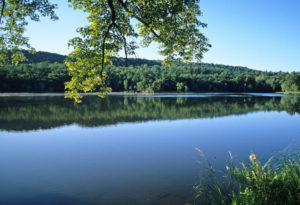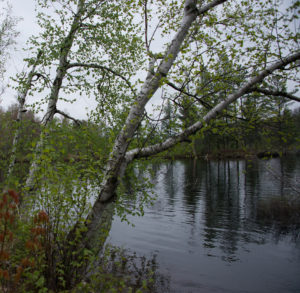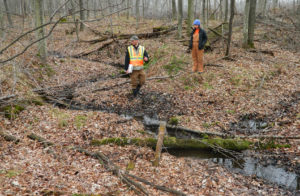By Robert Godfrey
Think about all the forests you ever enjoyed in your life. Their natural beauty, the wildlife that inhabit them, the

Sky and trees reflected in tranquil lake water within Flambeau River State Forest.
calming break they give us all from our hectic lives. Forests are important for a lot of reasons and serve a great many purposes. But have you ever stopped to think about all the things forests do to help our environment?
For example, forests are like lungs. They are critical in absorbing and storing carbon dioxide (CO2) from our atmosphere and helping us to fight climate change.
But have you ever thought of our forests as a water sponge?
It’s true. What they do is truly amazing. They collect and filter rainwater. Then they release it slowly into our streams and rivers. At the same time, these “forest sponges” – trees are made up of more than 50 percent water – are doing some purifying magic, taking out all kinds of pollutants from water before it reaches a stream or river. Continue reading “Forests and water go together in rural and urban Wisconsin”


 hydrologists – monitor our state’s water quality before, during and after forests are harvested. One is Nolan Kriegel. Through his work in safeguarding one of our major sources of clean water, he serves us all in this important job.
hydrologists – monitor our state’s water quality before, during and after forests are harvested. One is Nolan Kriegel. Through his work in safeguarding one of our major sources of clean water, he serves us all in this important job.